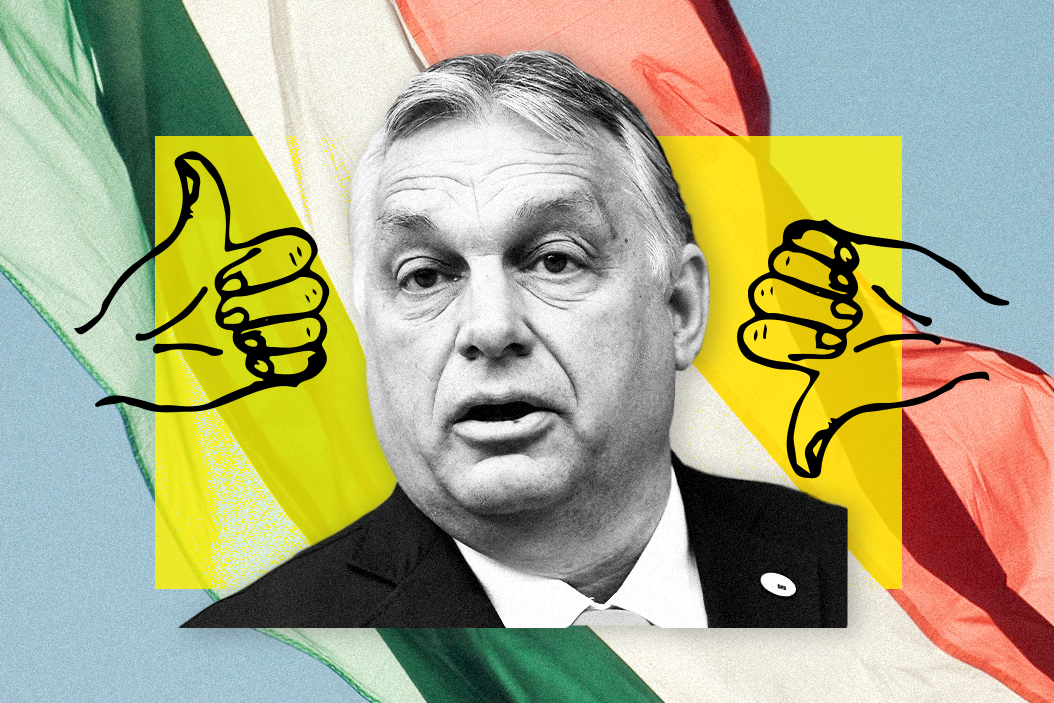Just six weeks away from a national election, Hungarian Prime Minister Viktor Orbán is facing the political fight of his life. In recent days, the right-wing populist leader, who has proudly dubbed Hungary an “illiberal democracy,” launched his re-election campaign with a speech rallying against war between Russia and Ukraine. He also voiced support for the EU project despite saying that Brussel was waging “jihad” against his country.
What is Orbán’s game plan, and how are things looking for him and his ruling Fidesz Party?
Background: An “anyone but Orbán” election. Opposition groups are working together to try and oust the 58-year-old Orbán, a divisive figure who’s been in power since 2010. During that time, he has been accused of hollowing out Hungary’s governing institutions, undermining democracy, and damaging his country’s standing within the European Union.
United for Hungary – a broad coalition including the far-right Jobbik party as well as the progressive Democratic Coalition – has put partisanship aside in a bid to send Orbán packing. The group of strange bedfellows recently tapped Péter Márki-Zay, a politically conservative small-town mayor from southeastern Hungary, to lead the bloc. This is bad news for Orbán, an arch-conservative with strong support in rural and small-town Hungary, who paints his opponents as progressive shills. That charge doesn’t quite stick to Márki-Zay, a devout Catholic with seven kids. For now, the odds are still in Orbán’s favor.
Spending spree. Orbán has traditionally been fiscally cautious, and he was credited with slashing public debt after the financial crisis and steering the country away from default.
But Orbán has changed tack in recent months. Facing a tight race, he is trying to woo pandemic-weary Hungarians by boosting spending on pensions. In total, new government handouts and tax cuts could cost some 5 billion euros.
The Russian connection. Orbán, who entered politics in 1989 by forming an anti-Soviet youth party, has in recent years cozied up to the Kremlin, a fellow “illiberal” and conservative power center. In recent weeks, as Russia-Ukraine tensions were rising, Orbán – who leads a NATO member state – met with Vladimir Putin in Moscow, where he expressed sympathy for the Kremlin’s position on Ukraine.
Orbán was also trying to shore up natural gas supplies from Russia in order to keep fuel prices down at home – and in the process, was hoping to boost his image as an international statesman. It’s unclear whether he pulled that off.
The Ukraine wildcard. For as chummy as Orbán and Putin are, the Ukraine situation is still a wildcard factor for Hungary’s election. A Russian invasion could drive a major surge of refugees west to the Hungarian border. Orbán has famously opposed immigration from the Middle East and Africa. Would he feel differently about Ukrainians? The last thing he wants is to have to figure that out in the homestretch of a tough reelection fight.
Looking ahead. Orbán has become a populist icon in recent years. Trump enthusiastically endorsed him for reelection, and Fox News personality Tucker Carlson has also showered the Hungarian leader with affection. Orbán’s fate could very well be a bellwether for global populist nationalism in a post-COVID world.
